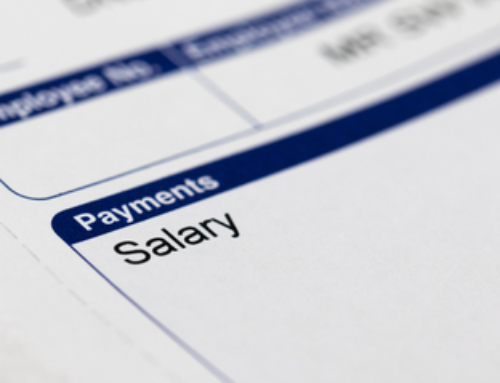There’s nothing worse than getting called into your boss’ office, only to be told your services are no longer required. Whether the company feels you’ve made a mistake, failed to meet their requirements, or simply aren’t up to the task at hand, it’s never easy to hear you’re going to be parting ways.
Between the emotional drain of rejection, the stress that comes with financial concerns, and having to look for a new position it can be quite traumatic, particularly if you feel the company you were working for are not justified in their actions.
The only thing worse than losing your job is feeling the reasons given for your termination were unfair.
Perhaps you’ve been blamed for someone else’s mistake, are being discriminated against based on your age, gender, religion, or political views, or there is a conflict of personalities within the office and the powers that be have decided one of you has to go – it just so happens to be you.
Whatever the reason given for your termination, it can be difficult to judge if you were dismissed for a legitimate reason, or have been the victim of wrongful termination. Here’s everything you need to know to decide if you need to be looking for a lawyer…
What Is Wrongful Termination?
Wrongful termination is when an employee has been fired for an illegitimate reason. If you’re let go and the reason given is a breach within your employment contract, it counts as an unfair dismissal. A common example would be if your employer has fired you without notice, or the notice period given is less than needs to be given.
In deciding whether or not you have been unfairly dismissed, it is best to get advice from a lawyer and allow them to understand your current situation. They can help you establish the area of your contract that has been breached, and work out if, due to this, you have suffered a loss – for example, the loss of your wages.
Are There Other Types Of Termination?
There are four main ways in which a member of staff can be dismissed: fair dismissal, unfair dismissal, constructive dismissal, and wrongful dismissal.
Fair dismissal comes with valid reasons for firing an employee. It is an honest dismissal that is fair, however, an employee may still believe it is unreasonable.
Unfair dismissal, on the other hand, occurs if you have been dismissed but the reasoning behind it is unfair and unsuitable. For example, if the reason you were given relates to pregnancy, paternity leave, whistleblowing, or another situation you have created that your employer doesn’t want to deal with.
Constructive dismissal describes the process of an employee resigning because the employer has breached the employment contract. This may happen as a result of allowing staff to be bullied or harassed, forcing them to work in unsuitable and dangerous conditions, or unlawfully demoting them.
Finally, a wrongful dismissal occurs when there is a break in the terms of the employee’s contract during the dismissal process. Wrongful termination can be fought by taking it to an employment tribunal.
What Are The Reasons For Wrongful Termination?
Wrongful Termination largely relates to breaches in the terms of an employee’s contract, but can also be due to discrimination, a failure to comply with completing an illegal act, and several other situations. For example, if the guidelines for termination aren’t followed, or public policy is disregarded.
Unlike unfair dismissal, you don’t need to have been at the same employer for more than 2 years for a situation to count as wrongful termination. If there is a breach in the contract for any of the following reasons, then termination will be considered wrong:
- Breach of contract
- Whistleblowing
- Any type of discrimination
- Any unlawful acts that an employee has refused to complete
- Company and public policy are disregarded.
Do I Need To Give Notice?
If you have been fired from your job, you may be given a few options for your notice period. If you have been told that you have been dismissed in person, via phone, letter, or email, your notice usually starts the day after you’re told. You may need to work out your notice, however, they also may tell you to not to come to work during your notice period – they will still have to pay you for the duration of your notice.
If you have been with your employer for more than two years you are expected to work a minimum notice period of one week, and up to a maximum of twelve weeks. If you’ve been with them for less than two years you are expected to work one week’s notice. This may be different if you are self-employed, on a zero-hour contract, or have been employed for less than a month.
When Should I Make A Claim?
If you feel you have been wrongfully dismissed then it would be beneficial to make a claim within 3 months of the date of your dismissal. You can claim up to 6 years later if the claim is going through the courts, which usually happens if you are hoping to win more than the maximum claim amount allowed within the employment tribunal, a total of £25,000. Any other benefits you could have earned, such as pension entitlement or health cover, should also be considered.
What Should I Do Next?
Once you have established that you have been wrongfully dismissed, you will need to check the resources that are available to you.
The main resource for you to look into may well be the HR department at your employer, as they will be able to assist you with the termination process and establishing what you may be entitled to.
You may also want to check your own rights and gain knowledge of the subject and surrounding topics that may be relevant to you. After you have done this, you need to find a trustworthy solicitor to help you with your case.
Your lawyer will then aid you throughout the process, and make sure you get the best out of your claim. Here at Beeston Shenton, we can provide all the legal advice you need, and will support you from start to finish. Get in touch now, and we will get right back to you…




